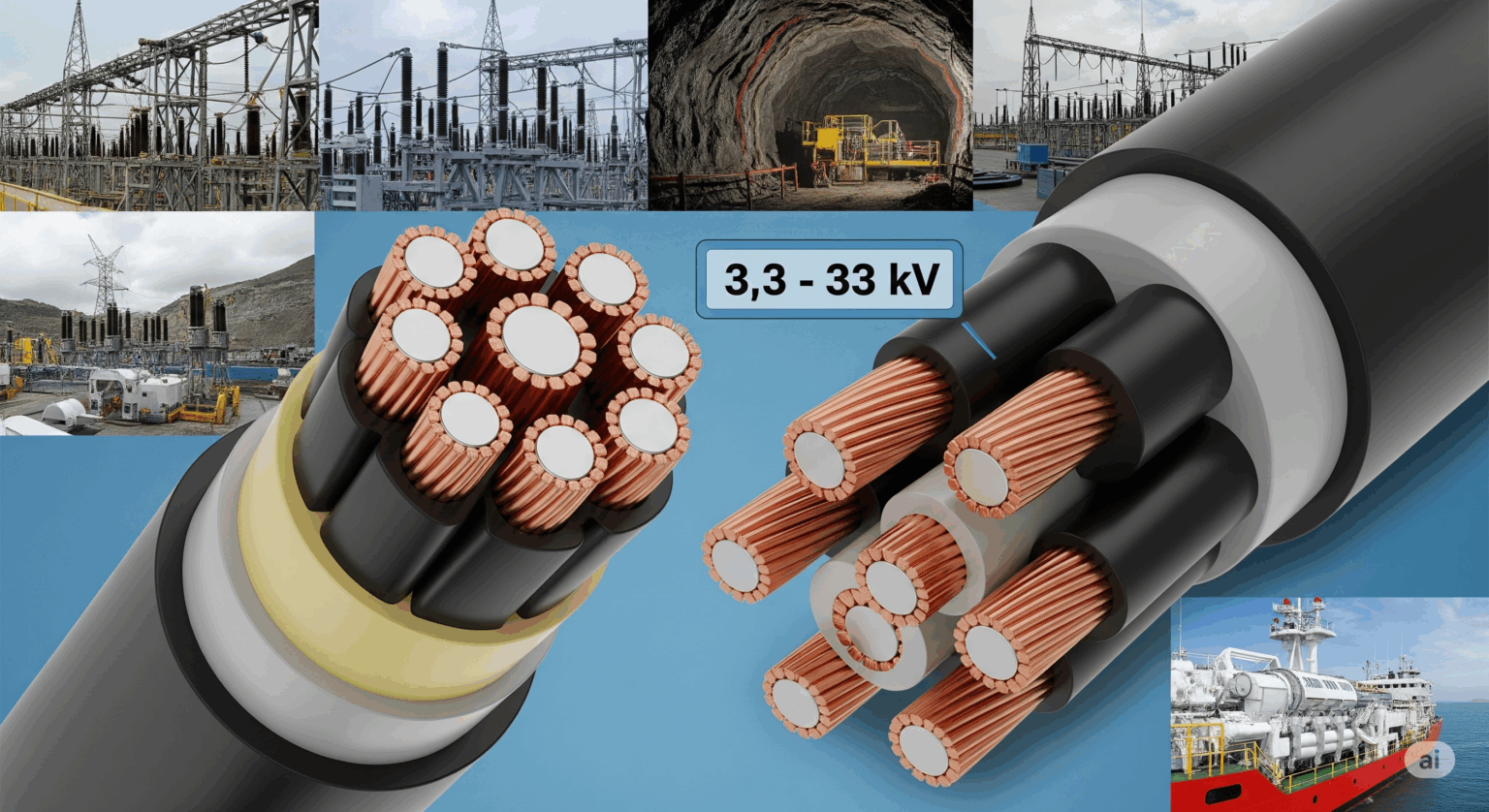Cables
Elastomer Insulated Cables For Working Voltages from 3.3 kV up to and including 33 kV
Strategic Recommendations for Elastomer Insulated Cables – IS 9968 (Part 2):2002
- Engage Early with BIS & Labs
Apply for BIS certification for IS 9968 (Part 2):2002 well before enforcement. Conduct tests for insulation resistance, dielectric strength, and mechanical durability at BIS-approved labs. - Partner with Compliance Experts
Collaborate with ERA compliance specialists for documentation, product testing, and ISI marking compliance. - Contact ERA Support Team
📧 cs@eraglobal.co.in | 📞 +91 9599296331 | 💬 WhatsApp
Assistance for BIS licensing, testing schedules, and exemption handling. - Track Notifications & Circulars
Subscribe to ERA Newsletter for real-time updates on the Cables (QCO), 2020 — including S.O. 280(E) and related DPIIT/BIS orders. - Do a Gap Assessment
Compare current product specifications with IS 9968 (Part 2):2002 requirements for conductor design, insulation composition, and electrical performance under rated voltage.

| Section | Details |
|---|---|
| Product Name | Elastomer Insulated Cables |
| Applicable Indian Standard (IS) No. | IS 9968 (Part 2):2002 |
| Title of Indian Standard | Specification for Elastomer Insulated Cables – Part 2: For Working Voltages from 3.3 kV up to and including 33 kV |
| Quality Control Order | Cables (Quality Control) Order, 2020 |
| Notification & Amendments | Notified via S.O. 280(E) dated 21 January 2020 |
| Final Enforcement Date | 1 August 2020 |
| Objective & Scope | To ensure electrical safety, mechanical strength, and operational reliability of medium-voltage elastomer insulated cables by enforcing IS 9968 (Part 2):2002 covering design, material, and performance testing requirements. |
| Products Covered | Single or multicore copper/aluminium conductor cables with thermosetting elastomer insulation (EPR, CSP) for 3.3–33 kV use. Protected by oil, abrasion, UV, and flame-resistant sheath, for fixed or flexible industrial, marine, mining, and power installations. Tested for insulation resistance, dielectric strength, mechanical durability, flame retardancy, and ageing. |
| Exemptions | Products meant exclusively for export are exempt. |
| Industries Impacted | Cable manufacturing, medium-voltage distribution, mining, marine, offshore engineering, heavy industry, and EPC infrastructure projects. |
| Mandatory Compliance |
Must conform to IS 9968 (Part 2):2002, BIS certification under Scheme-I mandatory, ISI mark must be affixed on product and packaging. |
| Next Steps for Stakeholders | Conduct BIS-approved lab testing, prepare technical and QMS documentation, apply for BIS licence, and ensure ISI mark before market release. |
| Legal Framework Provision & Enforcement | Enforced under BIS Act, 2016 by BIS with powers to inspect facilities, collect product samples for testing, and suspend/cancel licences for non-compliance. |
| Penalties | Non-compliance may lead to seizure of stock, suspension or cancellation of licence, fines, prosecution, and imprisonment up to 2 years, or both. |
| Conclusion | Since 1 August 2020, all elastomer insulated cables rated 3.3–33 kV must be BIS-certified and ISI-marked before sale in India to ensure safe, reliable, and standard-compliant power distribution. |
| References/Annexures | - Cables (Quality Control) Order, 2020 – S.O. 280(E) [21 Jan 2020] |
Ready to start your certification journey?
Let us help you navigate regulatory challenges and achieve certification with ease. Leave us your details, and we’ll get back to you—or request a free consultation today.
Get in touch with us today
Notification
The Elastomer Insulated Cables – Part 2 are regulated under the Cables (Quality Control) Order, 2020, issued via S.O. 280(E) on 21 January 2020 by the Ministry of Commerce & Industry (DPIIT) under the BIS Act, 2016. Compliance with IS 9968 (Part 2):2002 is mandatory for all manufacturing, import, and sale in India.
Overview
These medium-voltage elastomer insulated cables are designed for reliable power transmission in challenging conditions. Elastomer insulation provides flexibility, heat resistance, and moisture protection, suitable for industrial, utility, marine, and mining applications.
Objective & Scope
The standard ensures cables in the 3.3–33 kV range meet strict mechanical, electrical, and safety standards. It specifies conductor construction, insulation materials, sheath performance, and mandatory testing to ensure long-term service life and safety.
Products Covered
Single or multicore copper/aluminium conductor cables with thermosetting elastomer insulation (EPR, CSP) for 3.3–33 kV applications. Protected by oil, abrasion, UV, and flame-resistant sheath, suitable for fixed or flexible use in industrial, mining, marine, and power installations. Tested for insulation resistance, dielectric strength, mechanical durability, flame retardancy, and ageing.
Exemptions Provided
Products manufactured exclusively for export are exempt from BIS certification.
Industries Impacted
Cable manufacturers, medium-voltage network operators, mining companies, marine/offshore engineers, heavy industries, and EPC contractors.
Mandatory Compliance Requirements
All such cables must:
- Conform to IS 9968 (Part 2):2002
- Be BIS-certified under Scheme-I
- Carry the ISI mark on both cable and packaging
Enforcement Timeline
Effective 1 August 2020 for all manufacturers, importers, and sellers.
Next Steps for Stakeholders
- Conduct type testing at BIS-approved labs
- Prepare technical drawings, specifications, and QMS documents
- Apply for BIS licence and secure approval before sale
- Ensure ISI marking on every coil or drum
Legal Provisions, Enforcement & Penalties
BIS enforces the order under the BIS Act, 2016 with authority to inspect, seize non-compliant goods, and suspend licences.
Non-compliance may result in:
- Seizure of stock
- Suspension or cancellation of BIS license
- Fines and/or imprisonment up to 2 years, or both
Conclusion
Since 1 August 2020, all elastomer insulated cables for voltages from 3.3 to 33 kV must be BIS-certified and ISI-marked before sale in India. This ensures product safety, compliance with national standards, and reliability in power distribution networks.
Ready to start your certification journey?
Let us help you navigate regulatory challenges and achieve certification with ease. Leave us your details, and we’ll get back to you—or request a free consultation today.
